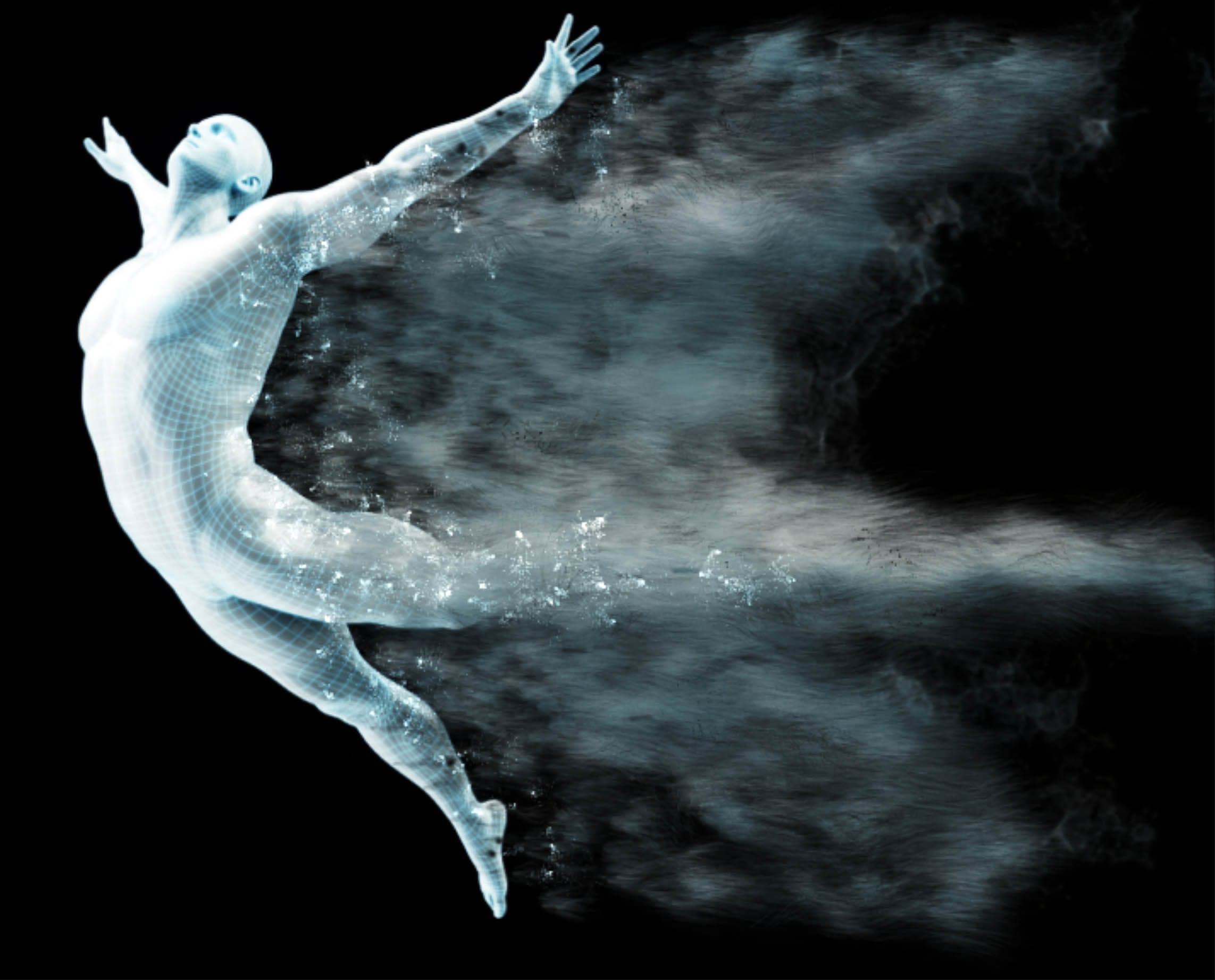About Us
Our Mission
Harnessing digital humans to eliminate global poverty

When digital humans are integrated into the workforce, the cost of production will drop.
As technology advances, many goods and services will eventually be produced at nearly zero cost.
This will result in an Age of Abundance; a world where poverty no longer exists.
That is our mission.
Here is what is coming…
In the next couple of years, lower production costs will result in wider margins for the companies that first adopt digital humans. If management decides to pass the cost savings on to their customers, then a market leadership position might be obtained. However; if prices are now lowered, these advantages in margins will only last until competitors catch up. As digital humans become ubiquitous, some companies will lower their prices, forcing others to drop theirs. Prices will spiral down, following the cost of production.
Barring a cataclysmic event, a future Age of Abundance is a mathematical certainty.
To accomplish our mission, Inpsira will provide a transformation platform that facilitates the seamless integration of digital humans into production pipelines. Digital humans will participate in production exactly like humans do. Humans will interact with digital humans without friction, and without having to ‘learn’ how. It will be natural.
This invisible integration will provide a pathway for any company to gradually migrate away from human labor, with digital humans taking over more and more of the workload. This process is already underway, albeit slowly. But acceleration is right around the corner, as we build out all the necessary pieces for this transformation.
As human jobs become obsolete, Inspira has committed a minimum of 20% of its profits towards retraining displaced workers. But this is temporary. Eventually, there will not be enough human jobs. When this day arrives, we intend to convert the retraining fund into a basic income fund, allowing our staff to take early retirement.
Inspira is committed to the ethical development and deployment of digital human technology to enhance efficiency, productivity, and cost-cutting across industries. By strategically integrating digital humans into the workforce, we aim to optimize operations, reduce costs, and drive economic growth, ultimately contributing to the dramatic reduction in the cost of goods and services and the alleviation of global poverty and its associated grief.
Regarding productivity, we will help prevent massive catastrophic loss, as we are now on a collision course with a very unpleasant economic outcome if we don’t make changes fast.
Our projections suggest a seismic shift in how we produce goods and services over the next few years, with almost unthinkable changes in society by 2045. Prophetic voices predict that 40-50% of all jobs may eventually be lost, leaving half the planet on a type of welfare system known as Universal Basic Income. And this is likely true, however mandatory retirement will not be homogenous across industries. While some farmers and carpenters may lose their jobs to automation, these labor-intensive jobs can conceivably be replaced with new labor-intensive jobs.
The truth is, automating human labor with robotics is very expensive, both to develop and to maintain. For this reason, automating skilled labor will happen more slowly and for many jobs, not at all. But automating knowledge work is comparably inexpensive and getting easier by the minute. In fact, most of the work that can be performed by a human on a computer today can be, and will be, replaced with AI much sooner than most people realize.
That’s why we predict that over 90% of knowledge workers will eventually be replaced by AI, with NO NEW JOBS to replace them. AI will take the helm of all knowledge work, leaving only a fraction of computer-centric jobs that will require human input. When you consider that knowledge workers make up 70% of the economy, all of a sudden the future of modern society takes on a level of uncertainty that is unprecedented in history.
We see future knowledge work falling into three categories, all of which an organization must begin the AI-enablement of immediately, before the technology gets even more mature.
1. Human Centric Work

This is work that does not include any automation. It is singularly human. Even though this category of work is shrinking, we now have new optimization opportunities (in the Machine Suite) to easily recover lost time. It is estimated by some that the average person is truly productive only 2-3 hours out of an 8-hour day. If this is true, the opportunity at hand is to recover between 5-6 hours per day through clever strategies not yet seen before.
The past one hundred years of management science has taken us this far. Now we look to AI to take us even further.
2. Human-assisted Work

This is work initiated by humans, and then performed by AI systems. In this category of work, humans plan and provide input, giving AI ‘leadership’. Today this looks like writing and inputting prompts to generate articles or images, and then reviewing the work and tweaking the output. However; in the very near future, the library of possible tasks will expand to many thousands of usecases.
This category of work will grow rapidly over the next decade, but will eventually shrink, as the next category of fully autonomous work takes over more and more of the workload. As an example, our math shows that within 10 years, the labor of just one person, in just one week, will be able to create all the content the world needs for an entire year. This category of work is essential to optimize. The reason for this is that just one minute of human time will result in hours and even days worth of productive output, (in current human-equivelant terms). We refer to this as HAILR, or Human to AI Leverage Ratio. Our calculations predict that 20% of the work currently performed by humans on computers will be performed by this category before 2045.
3. AI-Autonomous Work

If the server doesn’t go down, this work will be planned, managed and performed entirely by AI systems. Today the items on this list is small, and mostly invisible to us humans. Think of the the clock on your phone changing to daylight savings time automatically. Remember the days when you had to do this manually? Today we barely notice it.
This list of autonomous tasks will grow rapidly over the next two decades, taking more and more of the load from the above two categories. Our calculations predict that 70% of the work currently performed by humans on computers will be performed by this category before 2045.

If our math is even partially correct, the economic future of every company and nation depends on the rapid AI augmentation of every worker. If we do not augment every worker, others will leap ahead by such a margin that we cannot catch up. On the other hand, rapid augmentation, with every tool at our disposal, will put us in that leadership position and others will struggle along in our dust. AI gives us the ability to optimize every metric that up until recently, was not possible.
AI & The Economic Future
During their individual journeys, the founders confirmed what most executives already know…that all humans, even those who are highly trained and very expensive, have limitations that lead to inconsistent behavior, or even consistent low performance. And the more we scale, the wider the gap becomes. With hundreds of thousands of man-hours under their supervision, the founders saw the many opportunities for improvement which are now the subject of Inspira’s AI Machine Suite.

We stand at a critical juncture where the augmentation of human capabilities is not just an advantage but a necessity to avert obsolescence and seize the future that’s still within our grasp. The augmentation of every worker with AI is not just a luxury. It is the key to unlocking a future where competitive advantage is sustained and magnified.
AI systems must be capable of identifying problems before they become noticeable to a human. Ideally, those AI systems must attempt to solve those problems without human intervention. This approach frees the executive team to focus their precious and limited time on issues that can change the future of the organization, rather than trivial, repetitive human-performance problems.
The clock is ticking.

Projections by McKinsey & Co indicate that 30% of ALL work could be replaced as soon as 2030 and 90% of knowledge work as early as 2043. Our calculations agree and remain aggressive, predicting that only 10% of knowledge work will remain by the year 2045.
We urge every organization to commit to the transformation process of AI-enablement immediately before it is too late to catch up to those who are already out in front.
Competitive advantage can quickly be lost. Once lost, it is difficult or even impossible to gain back. A company (or nation) that does not rapidly augment every worker with AI, may suffer irreversible economic consequences.
Our conviction is this: the rapid AI augmentation of every worker is the linchpin of economic resilience and leadership in the global arena. It’s a race where the stakes are the very future of companies and nations.
At Inspira AI Corp, we are not merely building AI software; we are cultivating a synergy between human intuition and AI efficiency. The journey towards AI-enablement is complex and multifaceted, but it is one that we must navigate, starting today. Join us as we forge a path to a future where every metric is optimized, and every organization can thrive in the AI-augmented landscape. Together, let’s redefine what is possible.
